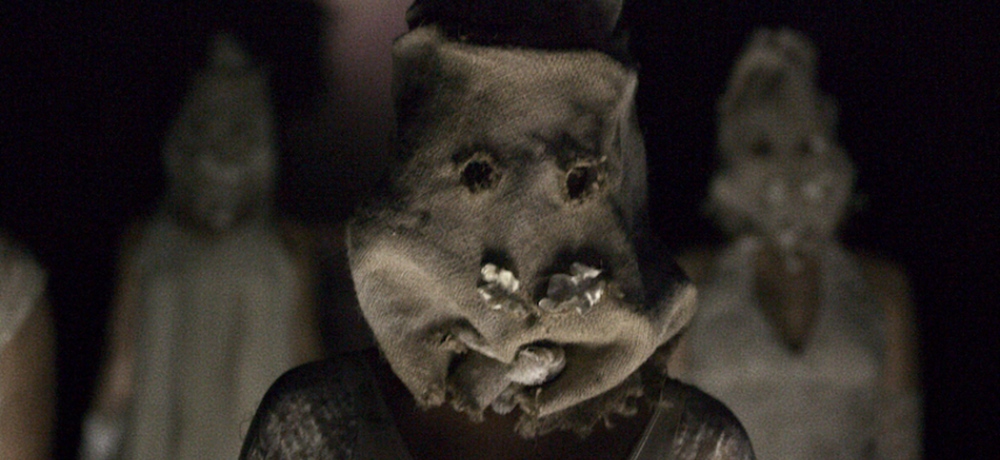


Originally slated to premiere this month at the 2020 SXSW Film Festival, The Toll from writer/director Michael Nader was able to enjoy a virtual premiere on Sunday night, allowing indie genre fans the opportunity to get to see the film despite everything going on in the world right now. And as a whole, The Toll proved itself to be a pretty darned good psychological thriller, although it doesn’t nearly end quite as strongly as it starts.
The story in The Toll is pretty straightforward stuff: a young woman named Cami (Jordan Hayes) has just spent a long day traveling, and gets a ride share to take her from the airport to her dad’s house out in the middle of nowhere. Her driver, Spencer (Max Topplin), is a bit of a Chatty Cathy, with some of his jokes not quite landing the right way with Cami, but once they end up stuck on a deserted road in the middle of nowhere, and things go from bad to weird to worse, it’s evident that there’s so much more going on than Cami and Spencer could possibly be prepared to contend with on this given night.
The parts of The Toll that worked exceedingly well for me as a viewer came about early on, as we watch as tensions rise between Cami and Spencer, not knowing whether or not the latter was really trustworthy at all. In the beginning of the film, we see him scroll past several possible fares (all male) before landing on Cami’s profile, which immediately raises some suspicions, and as he brings up some questionable topics during their drive, it only causes Cami to become more and more uncomfortable with this stranger who is in control of the situation. It’s a scenario so many of us are quite familiar with, because so often we find ourselves wondering if that stranger driving us home isn’t going to do something terrible to us, or if that guy walking behind us on the street is just going about his business or maybe he has something else in mind. There’s a veil of paranoia that has slipped over our collective consciousness these days, where it’s harder and harder for us to trust anyone.
The great thing about The Toll is that it’s very much a two-sided street in that capacity, as we ultimately come to learn that Spencer’s just as concerned about his well-being as a driver tasked with allowing strangers into his car at all hours of the night, and that was something I really appreciated about how Nader handled the story here.
Where things get a little tricky in The Toll is when the film dives into some supernatural elements; the initial setup is cool, but the more that’s shown, the impact feels lessened along the way, and it just feels like the script gets a little too busy by the time the film’s final act comes around. That being said, The Toll is the first feature from Nader and it shows great promise of a storyteller who really knows how to ratchet up the tension quite well, who knows how to peel back the layers on characters without giving us an endless exposition dump, and has a great eye for creepy and unsettling visuals. I do wish the final 20 minutes of The Toll were as stripped bare as everything that had preceded it, but as a whole, there’s still a lot to admire here, and Nader is well on his way to becoming a filmmaking force to be reckoned with.
Movie Score: 3.5/5